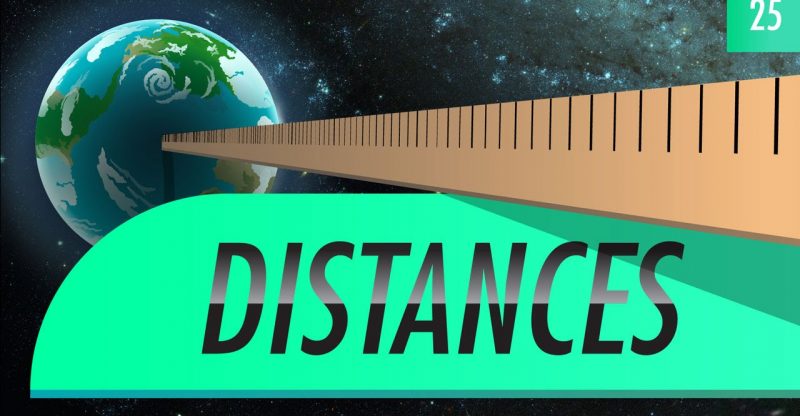Distances: Crash Course Astronomy #25
How do astronomers make sense out of the vastness of space? How do they study things so far away? Today Phil talks about distances, going back to early astronomy. Ancient Greeks were able to find the size of the Earth, and from that the distance to and the sizes of the Moon and Sun. Once the Earth/Sun distance was found, parallax was used to find the distance to nearby stars, and that was bootstrapped using brightness to determine the distances to much farther stars.
—
Table of Contents
Ancient Greeks Finding the Size of the Earth 1:07
Earth/Sun Distance Began Our Use of Parallax 5:39
Brightness Relation to Distance 9:07
—
PBS Digital Studios: http://youtube.com/pbsdigitalstudios
Follow Phil on Twitter: https://twitter.com/badastronomer
Want to find Crash Course elsewhere on the internet?
Facebook – http://www.facebook.com/YouTubeCrashCourse
Twitter – http://www.twitter.com/TheCrashCourse
Tumblr – http://thecrashcourse.tumblr.com
Support CrashCourse on Patreon: http://www.patreon.com/crashcourse
—
PHOTOS/VIDEOS
Lunar Ecplise http://www.slate.com/content/dam/slate/blogs/bad_astronomy/2014/04/15/lunareclipse_partial_apr142014_spica.jpg.CROP.original-original.jpg [credit: Phil Plait]
Venus & Mercury [credit: Phil Plait]
Venus Transit https://www.youtube.com/watch?v=34mXua1n_FQ [credit: NASA]
Black Drop Venus Transit https://en.wikipedia.org/wiki/Black_drop_effect#mediaviewer/File:BlackDrop-Venus-Transit.jpg [credit: Wikimedia Commons, H. Raab, Johannes-Kepler-Observatory]
New Horizons Approaching Pluto and Charon https://en.wikipedia.org/wiki/New_Horizons#/media/File:15-011a-NewHorizons-PlutoFlyby-ArtistConcept-14July2015-20150115.jpg [credit: NASA/JHU APL/SwRI/Steve Gribben]
Radio Telescopes Diagram http://scitechdaily.com/images/Radio-Telescopes-Settle-Controversy-Over-Distance-to-Pleiades.jpg [credit: Alexandra Angelich, NRAO/AUI/NSF]
61 Cygni https://archive.stsci.edu/cgi-bin/dss_search?v=poss1_red&r=21+06+54.60&d=%2B38+44+44.9&e=J2000&h=30&w=30&f=gif&c=none&fov=NONE&v3= [credit: Caltech / National Geographic Society / STScI]
Proxima Centauri https://www.spacetelescope.org/images/potw1343a/ [credit: ESA/Hubble & NASA]
Dying Star http://www.nasa.gov/images/content/64884main_image_feature_211_jwfull.jpg [credit: NASA, ESA, HEIC, and The Hubble Heritage Team (STScI/AURA)]
Exploding Star http://www.nasa.gov/multimedia/imagegallery/image_feature_1604.html [credit: NASA, ESA, J. Hester, A. Loll (ASU)]
Animation of a Variable Star http://www.spacetelescope.org/videos/heic1323j/ [credit: NASA, ESA, M. Kornmesser]
Hubble’s High-Definition Panoramic View of the Andromeda Galaxy http://hubblesite.org/newscenter/archive/releases/2015/02/image/a/ [credit: NASA, ESA, J. Dalcanton, B.F. Williams, and L.C. Johnson (University of Washington), the PHAT team, and R. Gendler]
source






